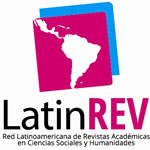Ethics and anti plagiarism
Ethics in publications
- Throughout the editorial process, Discursos Del Sur is guided by the Research Ethics Code of the Universidad Nacional Mayor de San Marcos, and during the manuscript editing and review process, the editor will be conducted by the guidelines of the Committee on publication ethics (COPE).
- Bad behavior in authoring will be reason to stop the editing process.
- Discursos Del Sur will not accept articles that have been simultaneously submitted to other journal or are in editorial processes in other publisher.
- The journal demands to authors, reviewers and Editorial Committee integrity, professionalism and responsibility in the publishing process, in order to contribute to social sciences advances. In this sense, our code of ethics is governed by the following principles:
- Scientific and methodological rigor
- Honesty
- Original and unpublished contribution to the social sciences
- Academic excellence in evaluation
- Plagiarism and fraud. Discursos Del Sur defines plagiarism as the appropriation of ideas, processes, results or fragments of an author's texts without the respective citation, being also a dishonest behavior that cannot be tolerated. It also considers the fabrication and falsification of data as fraud. Practices that the journal combats in all the editorial processes of each issue through the use of tools such as anti-plagiarism software (TURNITIN) and the opinion of peer reviewers.
Conflicts of interest
- The author declares any relationship -labor or institutional-, condition or circumstance that can be interpreted as a factor that reduces objectivity in the design, data collection or interpretation of the manuscript. These can be consultancies, scholarships, travel payments, etc.



















